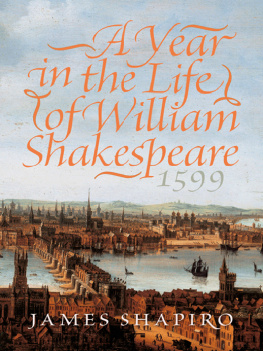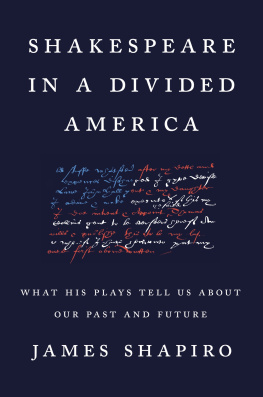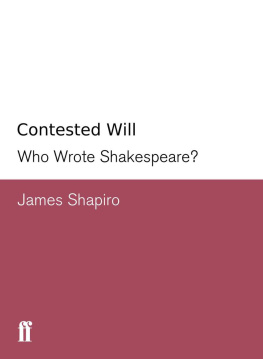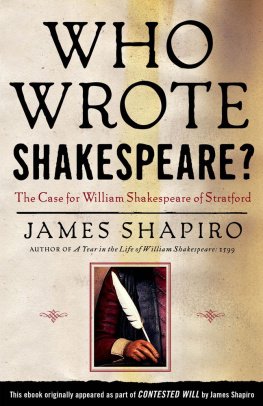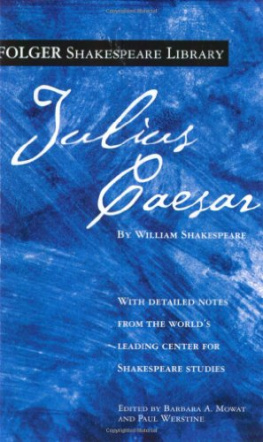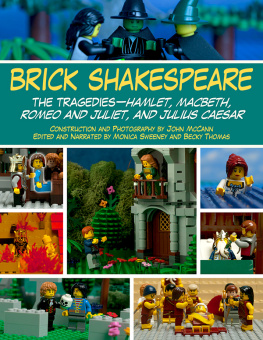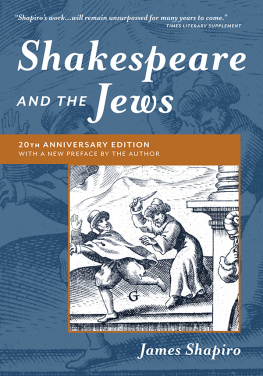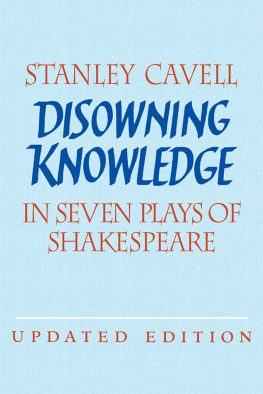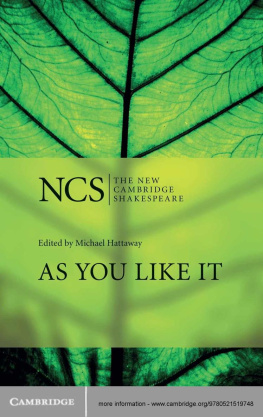I n 1599, Elizabethans sent off an army to crush an Irish rebellion, weathered an armada threat from Spain, gambled on a fledgling East India Company, and waited to see who would succeed their aging and childless queen. They also flocked to Londons playhouses, including the newly built Globe. It was at the theater, noted Thomas Platter, a Swiss tourist who visited England and saw plays there in 1599, that the English pass their time, learning at the play what is happening abroad. Englands dramatists did not disappoint, especially Shakespeare, part owner of the Globe, whose writing this year rose to a new and extraordinary level. In the course of 1599 Shakespeare completed Henry the Fifth , wrote Julius Caesar and As You Like It in quick succession, then drafted Hamlet . This book is both about what Shakespeare achieved and what Elizabethans experienced this year. The two are nearly inextricable: its no more possible to talk about Shakespeares plays independent of his age than it is to grasp what his society went through without the benefit of Shakespeares insights. He and his fellow players truly were, in Hamlets fine phrase, the abstract and brief chronicles of the time (2.2.524).
The commonplace that dramatists are best understood in relation to their time would go unquestioned if the writer in question were Euripides, Ibsen, or Beckett. But only recently has the tide begun to turn against a view of Shakespeare as a poet who transcends his age, who wrote, as Samuel Coleridge put it, exactly as if of another planet. The impulse to lift Shakespeare out of time and place was greatly enabled by the decision of Shakespeares first editors to present his plays out of chronological order. The First Folio of 1623 was put together by John Heminges and Henry Condell, who had worked alongside Shakespeare since the mid-1590s. Having spent most of their adult lives performing in Shakespeares plays they knew the sequence in which all but the earliest of them had been written. But they nonetheless decided to shoehorn them into the categories of comedies, histories, and tragedies (which made for a very uncomfortable fit for tragedies like Cymbeline and Troilus and Cressida ). Even within these categories they ignored the order in which the plays were written, so that, for instance, the late great play The Tempest is the lead comedy in the First Folio.
Their decision also made the question of how Shakespeare developed as a writer much harder to answer. Over a century and a half would pass before Edmond Malone, the first scholar to tackle this question, even tried to establish the progress and order of Shakespeares plays. And to this day there is no scholarly consensus about the dates or sequence of a number of the plays, especially the early ones. Imagining Shakespeare free of time and place has made it easier to accept Ben Jonsons assertion that Shakespeare was not of an age but for all time and to forget that Jonson also called his great rival the soul of the age whose plays captivated Elizabethan playgoers. For Jonson, the two claims werent mutually exclusive: Shakespeares appeal is universal precisely because he saw so deeply into the great questions of his day. Shakespeare himself certainly thought of his art in this way: the purpose of playing, he wrote in Hamlet , is to show the very age and body of the time his form and pressure (3.2.2024).
Those who sever Shakespeare from his age do so because there is both too much and too little to know about the man and his times. Too much, because the richness of Shakespeares creative life during the quarter century from 1588 to 1613 is impossible to contain in a single volume or a single critical intelligence. Who can claim to fathom whats at stake in every one of Shakespeares works? Nobody, surely, has ever mastered the hundreds of chronicles, plays, poems, and stories that inspired him. And the amount of information that historians have uncovered about life in Shakespeares England is daunting. Theyve shown that Elizabethan culture ought to matter a great deal to us, for weve inherited its conflicting views of everything from the nature of the self and sexuality to nationhood and empire.
Too little, because we dont know very much about what kind of friend or lover or person Shakespeare was. This, in turn, has opened the door to those who deny that Shakespeare wrote his plays and attribute them instead to Christopher Marlowe or Francis Bacon or the latest candidate, the Earl of Oxford. Its unfortunate, because even if we dont know much about his personality, we know a great deal about Shakespeares career as a writer (more than enough to persuade a reasonable skeptic that he wrote his plays himself). Wed know a lot more about his life had one of the seventeenth-century antiquarians interested in Shakespeare bothered to speak with his younger daughter, Judith, who was still alive in 1662, nearly a half century after Shakespeare died in 1616. One of those antiquarians, John Ward, even made a note in his diary reminding himself to call on her in Stratford-upon-Avon, but she died shortly thereafter, and with her, a direct and intimate sense of the kind of man Shakespeare was.
At the heart of this book is the familiar desire to understand how Shakespeare became Shakespeare. The time-honored way biographers have gone about answering this question is to locate the wellspring of Shakespeares creative genius in his formative experiences. This is risky enough when writing the lives of modern authors like Virginia Woolf or Sylvia Plath, whose biographers have piles of correspondence, diaries, and photographs to sift through. Its nearly impossible with Shakespeare, who left behind neither letters nor diaries. And the only two authentic portraits of Shakespeare to survive are posthumous. They depict a modestly dressed and serious man of medium build, with dark hair, full lips, large attentive eyes, a long straight nose, and an unusually large forehead. But neither the engraving on the title page of the First Folio nor the funeral monument that still stands in Stratfords churchin which he looks more like an accountant than an artistoffers much of a window into Shakespeares soul. If Shakespeare had a say in this funeral monument he may have been responsible for its most salient feature, that he be remembered as an author: under his left hand is a sheet of paper and in his right one, poised to write, a quill. The overwhelming desire for a more expressive Shakespeare, a truer portrait of the artist, explains why paintings of imposters who more closely resemble the Shakespeare of our imagination now hang in the National Portrait Gallery and elsewhere and are the ones we find reproduced on everything from coffee mugs to editions of his works.
Biographers can only guess how Shakespeare felt about his mother, father, brothers, sisters, neighbors, friends, schoolmates, or employers, or, for that matter, how or even where he spent his adolescence or the crucial lost years between his departure from Stratford and his arrival in London. Those committed to discovering the adult Shakespeares personality in his formative experiences end up hunting for hints in the plays that they then read back into what little can be surmised about his early years (and since the plays contain almost every kind of relationship and experience imaginable, this is not as hard to do as it sounds). But the plays are not two-way mirrors: while Shakespeare perfectly renders what it feels like to be in love, betrayed, or crushingly disappointed, it doesnt necessarily follow, as one nineteenth-century critic put it, that he must have loved unhappily like Romeo, and like Hamlet not have known for a time what to get on with next.

